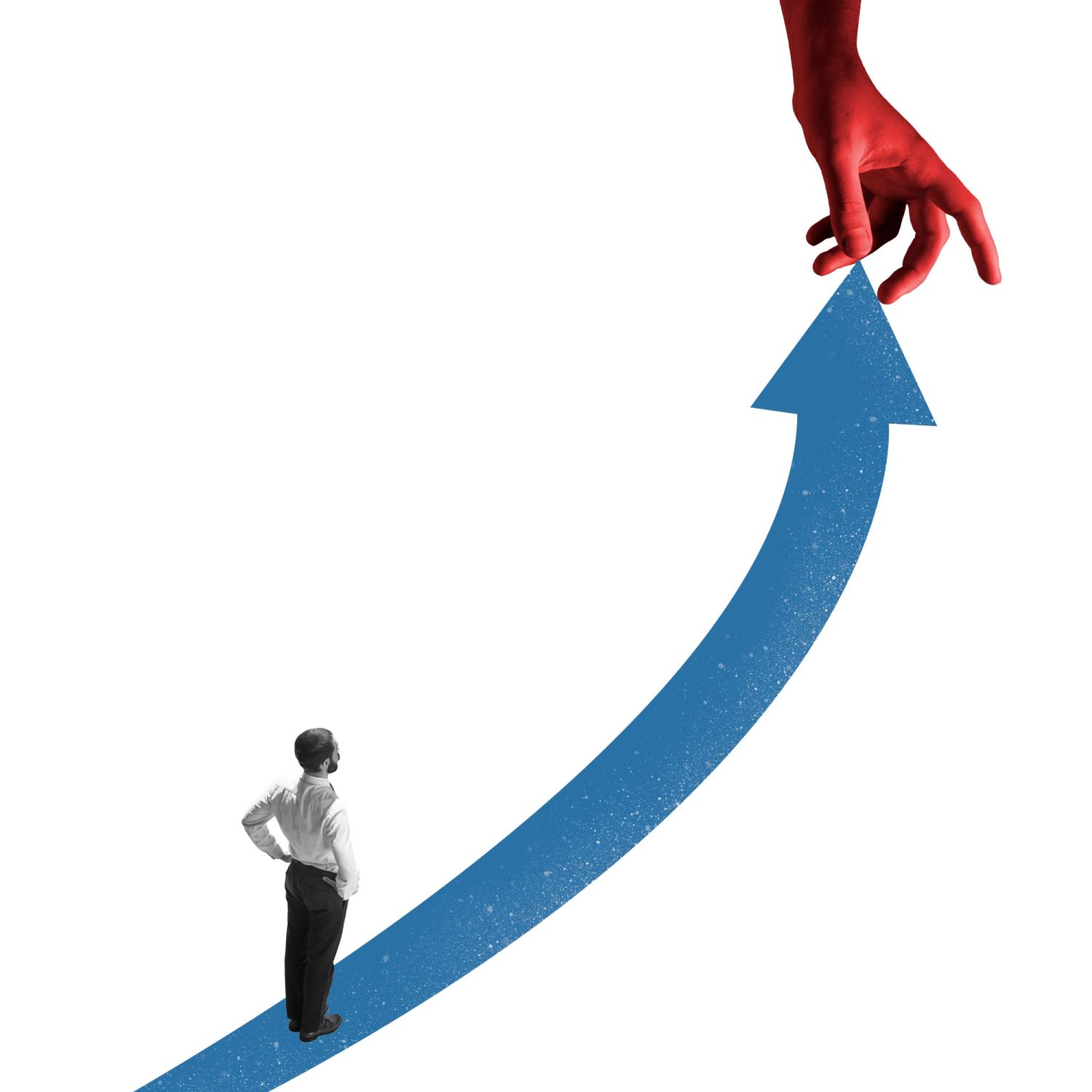I've seen too many changes to remember in the nearly twenty years I’ve been using Google AdWords (Now Google Ads).
Back in the day, there were no match types, mobile wasn’t a thing, and we could even see other advertisers’ bid prices. The industry thought Google was mad when it introduced ‘Enhanced Campaigns.’ But it came and went – and little changed. Those twenty years of change pale insignificantly compared to the next ten years.
At the end of each year, marketers morph into futurists who predict what the next twelve months look like. And search marketers are no different. I thought I’d catch up with some of the country’s best-known (and passionate) search marketers to see what the 2020s will hold for Google Ads and its customers.
I met with Miki Clarke from Allianz, Phil O’Connor from Koala, Daniel Benton, General Manager of GroupM’s performance agency Neo, Andrew Burger from Switched On, and our own Preet Singh from Indago Digital for a couple of cheeky ales and to chew on the search-marketing fat.

Can another search engine become a reasonable competitor?
Google has deservedly owned the search space for many years, and I wanted to confirm with these legends that they didn’t see that changing. The overarching answer was that Google is too engrained into our psyche and its product too strong for a new or current competitor to make a significant impact. We agreed that a threat to Google wouldn’t come from a traditional search engine.
All of us agreed that we’d like other options, or that there were certain engines which we would like to see grow in market share. Followed by Phil making a reference to Ecosia whom he’d “like to see succeed as they share Koala’s values”.
Preet and I had differing views on Bing's future. All search marketers know that Bing’s audience is an elderly demographic based on people using the default browser which their device comes with. I stated that “as these people get replaced with a younger, more tech-savvy generation, Bing’s market share is likely to drop.” Preet argued that with the “proliferation of gamers who use Xbox (where Bing is also the default browser), Bing is likely to maintain its market share. If they play it correctly, could they increase market share?”
Preet also commented that voice search could play a large role here. “If Amazon’s Alexa or another non-Google device captured the voice market – they would be able to take search market share away from Google.”
What do you see as being the biggest threat to Google Ads?
We all nodded at Andrew’s comment about “Google getting squeezed, but not being able to see a single technology or entity being the Google killer.”
As none of us believed the threat was from a search engine – where would the threat come from?
My opinion was that the biggest threat was their success. As more advertisers flock to the platform and it becomes easier to use, eventually, it’ll stop being the fantastic ROI driver it is. Speaking to client-side marketers and inexpensive search verticals such as insurance, there are already internal conversations around paid search profitability.
However, I do believe that Google will combat this by:
- Overlaying audience data onto a keyword search to make a click more relevant and therefore, valuable to an advertiser.
- Making other products better converting – recent changes in YouTube have shown how this is possible.
- Growing their inventory through expansion and acquisition.
I found it Interesting that my perceived threat didn’t resonate throughout the group. Most believed that Google had the smarts, data, and inventory to combat it.
Phil and Andrew’s opinions were closely aligned with a focus on the key threats, which are political and regulatory.
Phil said “I don’t see a threat to Google within the ad industry per se. Rather – the biggest threats to Google I can see are political. As nations gravitate towards the regulation of data, this [shift] will make it much harder for publishers like Google to monetise the vast amounts of data they collect.”
Andrew questioned – “how can Google and Google Ads continue unabated without some interference from anti-competitive laws or big changes to privacy law?”
Dan believed that the threat comes from Vertical Search. “I think we’re going to see more vertical searches: Amazon for retail, maybe places like Home Improvement Pages for trade-based searches, and Domain for real estate. However, I don’t think it’s going to be earth-shattering in terms of the budget that’s flaunted. A specific battle will be around eCommerce, thinking about Amazon or places like Citrus Ad, which power search for FMCG brands from the likes of Woollies and Officeworks.”
Phil also saw eCommerce as being a key battleground – but with a different steer. “There are threats to search such as conversational e-commerce in FB messenger, 1-tap checkout in Instagram – but they aren’t existential. Google has the resilience, tech and smarts to adapt to the new world. Also, money. Lots and lots of money.”
The one thing we all agreed on was that the main threat was from Amazon. We also agreed that Amazon’s entry to the Australian market has been underwhelming to date but that it’s a phased approach. With the large number of people on the ground here, they’re clearly not going anywhere soon.
Preet referred to Amazon’s approach as not being underwhelming but “very deliberate and systematic” and having “the disposable cash to make it work”. “In countries such as the US and the UK, most products are stocked on Amazon, and that’s where your purchase journey starts and finishes. Google is completely out of that equation. However, Google’s main point of difference is connecting businesses and customers with an omnichannel approach – and Google can facilitate that connection.”
Miki questioned whether voice search could be a threat; “Becoming an expensive distraction as they work out how to own the market and monetise it, releasing devices with screens and starting to charge for their crowd-pleasing free services such as Gmail?”

Will the ACCC ‘regulate’ Google Ads?
And what regulation should there be?
Most of the focus here was on data collection, but I was more interested in the ACCC’s comments about Google pushing its own product set within its platforms. As well as a lack of regulation on its algorithms.
Most of us agree that Google has created this platform and has the right to promote its own products in any way it sees fit. But none of us were overly comfortable with the power that provides them. Without being drawn on potential regulation, Dan pointed out that “while everyone wants to get a view into the black box, Google AdWords has been a large catalyst in the growth of Australian business. I think it’s done a pretty good job of growing the economy.”
My argument is that we often see CPCs rise, even though there might be fewer advertisers and more consumers in that market. In an auction-based environment, costs should decrease, not increase. Basic supply and demand. Personally, I’d like to see some form of regulation around paid search click prices – but I cannot see how this could be enforced and that the ACCC will be ineffective here.
One of Miki’s main concerns was around trust and transparency around the auction and costs. Working in the insurance space where CPCs are extremely high (top-of-page bid for the phrase ‘life insurance quote’ is AU$124), Miki questioned whether having “blind faith” that you’re only paying one cent more than the highest bidder was satisfactory? It would be great for advertisers to have visibility and, in this time of mistrust towards digital advertising, would supply much-needed PR.” However, she believed that “Government would likely focus on protecting the privacy rights of consumers as well as controlling broadcasting and eradicating fake news.”
Andrew raised the most relevant point on whether the ACCC had the skills to regulate Google. Andrew said, “I don’t know that the regulators know how to deal with a tech giant as big as Google. I believe they’ll look to the EU, which is more progressive legislatively for guidance. They’re willing to slap Google with huge fines – Google seems willing to pay them. I think the ACCC will look to the EU example and what GDPR has done as a stepping stone for privacy.”
The overarching opinion was that the ACCC is ‘a toothless tiger’, and that Australia will rely on other countries or regions to set the benchmark to implement regulations.
How will privacy laws impact Google Ads tracking and attribution?
Most of us agreed on the basics. Dan referred to ‘blind spots’. “Your measurement on Safari is compromised, but we can easily use models to forecast results, as there’s not a huge difference in intent behind a search based on browser – Chrome or Safari.”
Phil talked about how “Apple has moved to ITP2, Chrome’s following suit and that tracking will have become increasingly difficult. As remarketing becomes less useful, I anticipate advertisers will shift spending up the funnel towards consideration and leverage predictive indicators rather than behavioural signals.”
“Regarding the industry; there’ll probably be a mass extinction event as data providers and agencies that can’t adapt to the new regulations lose business and fold. Those that can adapt will probably come out the other side stronger for it and eat up market share.”
Preet was “most concerned about the ACCC imposing heavy-handed restrictions. From the initial report we’ve seen – it’s GDPR on steroids. It feels like the industry could be going back ten years.”
“Based on what they’re planning it would make doing business with Google pretty difficult. Without those measurements in place, which we’ve all been addicted to, what are you going to do? How will you deduce whether your millions of dollars in investment are working or not? That’s probably one of the big areas of concern. With that being said, we do need to regulate Facebook and Google. I don’t think that your average joe is even close to understanding the sheer scale of data that’s being collected.”
Andrew’s view was similar, but he felt that Google would benefit from the new privacy laws. “The tighter and harder regulations get, the better off Google is. They sit on more first-party data than anyone else which gives them the edge. It then becomes a three horse-race between themselves, Facebook and Amazon. Who has the most robust data? Who can utilise it in the most effective manner?”
Most of us agreed that remarketing and attribution would greatly suffer. Andrew asked us to “think about the attribution platform, which Google has been talking about for years. They haven’t solved it within the current environment. So – I’m not sure what hope the market has when these big platforms can’t talk to one another.”
Phil believed that “We’ve seen it many times before where a paradigm shift comes. As per usual, the responsibility to succeed in the data dark ages will fall to the advertiser to innovate around the problem.”

Will Google Ads become unprofitable for advertisers?
At this point, we knew that most of us didn’t subscribe to my theory that Google Ads would become too costly for advertisers. But it was still interesting to hear the other points of view. We all believed that Google would find other inventory to monetise and ensure clicks were more effective (overlaying additional data). Additionally, “attribution will become more important – as will other metrics such as Average Lifetime Value.” – Phil.
Miki who works within one of the highest CPC verticals, referred to “overlaying first party data onto search campaign to drive efficiencies. Working with advertisers to ensure Google Ads drives great ROI is in Google's best interest. The question is whether we’re providing Google with new data they can sell to other advertisers?”
She also referred to a small business owner she knows (local gym owner), who “was back to relying on leaflet drops as paid search had become too expensive.”
Most of us agreed with Dan that Google would “unlock new volumes through new formats like voice; that will help flatten out CPCs”.
Andrew’s take was different. “I think that consideration around ‘is it a profitable channel’ is being thrown out the window by learned and trained behaviour.”
“However, when you boil it down to ‘can it stop being a profitable channel?’ We already see that in some areas – where CPCs are too expensive. If we’re lucky, we might obtain a conversion below our required CPA, but generally, we’re paying above that at a macro account-level. We know that loyalty means lifetime customers, and we need to value a customer beyond a straight-up conversion. I think advertisers are getting smarter and going back to the traditional theories – as well as putting more budget towards the brand and other channels which have longer-term brand value.”
“5 years ago, in every strategy meeting we had, our clients questioned whether they should be bidding on their brand terms. Generally, science says that paying for the brand is worthwhile. I’m seeing now that businesses only bid on brands and don’t invest in non-brands. The baseline has changed. There’s a greater willingness to invest in search as a health check rather than an ROI driver.”
Dan agreed – but had a slightly different view. “I see brands shifting performance budgets back into brand building. ‘What happens if I shift my search budget towards branded and research queries that are cheaper for me to own?’ This should mean users trust my brand more and, ultimately, drive higher conversion rates.”
Preet chipped in by asking whether removing the average position was a play for advertisers to start dropping bid prices. “We all know that certain advertisers are pushing for top rank, and when you have a number of them, the price exponentially increases for everyone.”
How will automation & machine learning change Google Ads?
A resounding ‘the future is bright, and automation is already changing paid search for the better’. Which greatly surprised me. We were all extremely positive about the future of paid search and the benefits that automation would bring. We’re already there, are we not?
Phil referenced “not traditionally writing creatives, or bidding on keywords manually. I don’t know anyone who doesn’t use ‘bid-magic’ these days. The algorithms and automation have become so effective – why would you manually bid?”
“We’re at a point where automation can do it better than humans. We can see it with smart shopping, display and Dynamic Search Campaigns. It’s about relinquishing control – which can be hard to do sometimes – and saying that I’ll trust the algorithm to do the right thing. With those types of campaigns, the irony is the keywords may not be high-achievers – but they’re smashing it.” – Preet.
The issue Miki has with automation is one of compliance. “Obviously you need the human element of assessing the campaign and making the ultimate call to what goes live. Already dynamic and responsive search ads are a nightmare from a compliance perspective as you cannot see the final product – what is going to be served and in what order.”
So – what is the role of the search marketer in the next decade?
Throughout the evening, Dan’s stance on Google was the most positive, and he was vocal to this. “Paid search markers will focus on measurement, which (with changes to tracking and the expense of the medium) will be crucial. We’ll move more into data science, user behaviour modelling, audience planning and strategy.”
“We will also spend more time looking at where we send people. As great as we might be at driving traffic if we’re sending people to sites that provide a poor experience – it lets everyone down. I’m not necessarily suggesting that we’re all going to move into web development and UX, but more attention will be paid to what that experience looks like.”
Coming from an SEO background, Miki spoke about the two disciplines merging. “Organic works so well by taking in numerous factors to understand the worth of that site or webpage and its relevance to the users’ search query. Paid search could become fully automated if it incorporated the SEO smarts, which determine if the page provides a good user experience, has engaging and original content, and is fast to load – will be the differences between a good and bad paid search campaign. Our teams will eventually only be responsible for constructing messages USPs – and the machines will come up with the rest.”
Andrew concurred with the group’s overall belief that the paid search marketer will still have a role. But – “if we can’t change the bids on a search account [and] can’t influence where our ads are showing (because everything’s automated) – then the easy thing to say is that our roles become more about strategy. If anyone’s sitting around thinking, those jobs that revolve around pressing the ‘optimise’ button will still exist in five years – they’re going to run into serious problems.”
Phil summed this question up very succinctly. “Automation and machine learning will remove control but improve results; so – I’d say it’s for the better. I’m excited to have a team with more time to work on other marketing and channels. Currently, search is so labour intensive, and I’m looking forward to when you don’t have to conduct continual SQRs and other tedious work.”
“Our teams won’t disappear. There will always be a place for humans to work with Cyberdyne by pressing the right buttons. There will be external forces that the machine doesn’t understand, maybe positive market conditions or negative PR that it cannot see or understand.”

What will be the role of ‘keywords’ be in Google Ads?
aboutThis was the question which I wanted answered the most. Google started with an exact match, introducing a phrase (to help travel campaigns). Followed by ‘broad’ and then ‘modified broad.’ And now – ‘exact’ doesn’t mean exact – we’re generally confused as to what ‘broad’ means and struggle to control spending around match types. Surely, keyword searches in Google Ads are dying. Did my colleagues agree?
No one believed that match types would be available at the end of the next decade. Additionally, the group was split as to whether keywords would disappear. We all agreed that control was being stripped away from the advertiser – and that come next decade’s end, control around keywords would be limited.
Andrew and Preet believed that, ultimately keywords would vanish. Phil sat on the fence (unusually), whereas Dan and Miki thought they weren’t going anywhere.
Modern-day automated campaigns use the website or selected web pages to base building a campaign. But Preet took it one stage further. He envisages a world where Google could use “call-centre transcripts, live chat conversations and customer data to turn that into a feed of self-targeting keywords.” Phil questioned what Google Ads would look like, full-stop – “Past 2025 – I believe we’ll be looking at search marketing in a different way. As to what that is, I’m not even sure Larry [Page] knows.”
Andrew said it best. “I think it’s pretty easy to envision a future without keywords. And I think of what’s already happened with these ‘smart’ and ‘dynamic’ campaigns – I can imagine a world where there is little to no control over keywords. However, due to things such as brand safety – there will always be a place for negative keywords.”
We’d also overlay data onto keywords with significant depth: first-party, third-party, location and demographic. The other critical conversation was around intent and as much as a keyword can intimate intent, Google has the search history, meaning they can provide an even better view of the intent behind that individual’s seaindividual’s“Miki believed that “fundamentally – keywords will remain. Google will continue to serve up what it wants, but intent will play an increased role. Maybe we’ll be target on intent – i.e. is that consumer researching or buying?”
“With the increased use of voice search, I cannot see how match types will remain. How can we target long search queries using anything but some kind of broad match? Which again – provides Google with more control than the advertiser.”
”didn’t“We’reclient’s‘’Although Dan didn’t see keywords disappearing, he said that he could see the path Google was moving down. “We’re running dynamic search ads, which use a client’s website to build a campaign and it drives strong results. This clearly shows the future of search. I totally agree with Miki and how a ‘well-SEO-ed’ site will help drive a great Google Ads campaign. If you’ve got a good structure, good taxonomy and robust content, automated campaigns such as dynamic search ads will work extremely well for you.”
What technologies or channels will Google Ads integrate with or purchase?
There were two main schools of thought here;
- Integration with a CRM tool.
- More ways to distribute ads.
“Adobe’sGoogle specialises in finding new customers and Salesforce in driving more value from current customers/leads. “I think that Salesforce integration will kick into another gear. That seemed like a nice, defensive position for Google, given what Adobe’s been doing. So, I wouldn’t be seeing more integrations with Salesforce and Salesforce Marketing Cloud,” said Andrew.
“I think they might keep Salesforce at arm’s length so they don’t get dragged across the AC coals. But you know what – it could easily happen. I’m sure Google I’mld be big enough to snaffle up Salesforce.”
”Although Dan didn’t provide a specific answer, his focus was on reach. “I think their i“vestments need to be around increasing reach, trying to get more attention, more eyes on their properties and more technology for the measurement of reach.”
”Andrew was thinking “about what a Netflix deal would look like. Netflix needs a partner who can help defend against the incoming wave of new players, such as Disney Plus. I wouldn’t be surprised if they used Google Smart to help monetise the platform. And then I think that’s a logical decision to how does Google & YouTube become more of an ad-serving distribution platform for connected TV and the programmatic digitisation of TV.”
”This was an area we all agreed on – TV will move to a programmatic model, and Google will 100% want a slice of that pie. ‘Is the search marketer not perfectly positioned to buy and optimise that type of TVC purchase?’
’“Andrew went on to suggest that “however if you look at the portfolio of Alphabet, most of the investment is in areas outside of advertising or Google’s traditiGoogle’senue streams. Things like self-driving cars, drone-delivery services and, most recently, Fitbit. Essentially everything that will facilitate better user experience or more time spent on devices which can show ads.”
“Phil made the reference towards “OOH Media’s SMART product where they are using data to better target an audience based on demographics, psychographics and buyer behaviours. I think this is an area Google might move into. So much of out-of-home is digital these days, and Google could replicate SMART but overlay its own mobile data to provide messages specific to individual consumers as they walk past out-of-home displays – aka Minority Reports.”
”The group generally thought that Phil and Andrew were correct; these two growth areas had to be on Google Ad’s radar. I’ve been impressed with how Out-of-Home has rallied to increase its share of ad dollars and digitalised itself. I see no reason why we couldn’t see out-of-home ads in the next decade.
“‘Miki and Dan went on a bit of a tangent and started to talk about Google My Business (GMB) and Maps. Miki saw them building better map integrations with “appointment settings tech, booking engines and eCommerce transactions (Which Phil greatly agreed with). Reviews sit perfectly within GMB, and I only see ‘social proof’ and reviews increasing in importance, especially as Google uses location tracking to authenticate your visit to a business. Would Google try and kill the reviews industries and replace it with an upgraded Google review product?”

What is the future of Voice Search?
I read so much on this subject; agencies have dedicated teams, tech and products for taking advantage. I still can’t work out whether its hype and its use will remain in the form of simple web searches, home automation, music, and kids asking for fart jokes. Or – it will be so prolific that it’ll shape all our futures. I’d suggest that Google’s move into wearable tech gives us a clue about their view.
The key question that needs to be answered is how ‘will it be monetised?’ From there – we can forecast its future.
As was the case for most of the evening, Phil’s beliefs closely matched my own. He believed that “data gathered from voice search will probably be leveraged to further enrich predictive targeting for prospecting & consideration campaigns in their other platforms. I imagine voice search will become a pillar of frictionless e-commerce as home assistants and digital wallets become more common. The power of voice search is the data. The consumer unwittingly continues to give Google more data, and voice search provides a different type of ‘search’ data set. Ultimately, Google will use this data by either selling it or making their other products more effective.”
Statistician Dan is quoted as saying “Google’s got a 68% share of the smart-speaker market in Australia. So, you’ve now got 5.7 million Australians who’ve got these devices in their homes. But I think we’re about to hit a tipping point. Right now, we’re using smart speakers for things like timers, to play trivia, or find out about the weather, but people are going to start using them for richer, much more complex queries.”
I pushed Dan for an answer on how Google could monetise these more complex queries. He believed that “if the consumer’s search query matches an ad – it’s essentially just like an audio ad – or something you’d hear on a podcast or radio. I think it will be different to traditional search, and it’s not going to be a traffic driver. If anything – it’ll be viewed as an impression. I think it presents measurement challenges, but there are opportunities.”
“We’re already seeing smart speakers that have screens. That’s less intrusive and looks more like a regular surface. For example, to see that Woolworth’s has bread on special and it’s on your screen – I think it’s a no-brainer.”
I questioned whether Google would eventually tell you where you could buy your shopping list most cost-effectively (The supermarkets are already providing them that data) and then your Google assistant buying it on your behalf.
Andrew didn’t believe that voice search would affect “Google’s big revenue streams because people aren’t using it to research a home loan or life insurance. It’s too involved of a process. Although, I do think it’s going eat up some of its simpler searches. Even with things like finding a restaurant – will you trust Alexa, etc., to make a recommendation for you? Maybe some people, but I think it doesn’t change that in-built behaviour around wanting to do some research. All of the voice-search volumes are things that historically haven’t been monetised well by Google.”
In the next decade - what metrics will Google Ads report on?
The conversation came around when we started to talk about Google Ad’s recent push into better measurement of instore traffic.
What I loved about this was that there were so many different views. Miki spoke about how “they are building case studies to help justify brand spending on YouTube and that they need to produce a metric that measures both consideration and brand uplift. Does appearing in the SERP’s or the Ad Auction not have value? Does bidding on your brand provide value outside of direct conversions? With display, we measure CPM and brand engagement – so is Google Ads and the products that sit within it any different?”
Andrew argued for measuring brand uplift, as well as tracking lifetime value. “Facebook’s done a good job with measurement frameworks around conversion uplift. It’ll show a certain number of ads as a test over a period of time and understand how that influences incremental uplift for my brand and sales performance. This sort of brand tracking will become increasingly important. Google can go out to advertisers saying – here’s how you should invest across our many platforms from both a brand and conversion perspective.”
He then flipped the view. “Instead of thinking about cost-per-acquisition within a search silo, I’m thinking about the lifetime value of this campaign within the wider activity I’m running. The challenge has been that it still boils down to a search account – where you say, ‘What’s the lifetime value of this search account? Whereas – I hope Google will help us measure search within the wider marketing piece.”
Dan felt that new measurements would be focused on voice search and “thinks there’s going to be measurements around voice search and connecting voice impressions to conversions.”
Preet talked about incrementality. “For large brands such as Myer and Woolworths, customers shop with them often. So, attributing a search on a Friday to a customer purchasing bananas on a Saturday – is a leap of faith. You can’t really say that shop is driven by that search. Could Google work with large advertisers to work out a measure of incrementality?”
“If Google lets advertisers start pondering on effective metrics such as customer lifetime value, they could end up losing them. Surely, they need to help advertisers move away from these short-term metrics and focus on the long-term value.”
Written by
Gary Nissim





